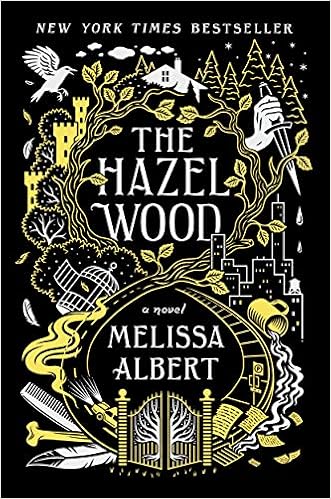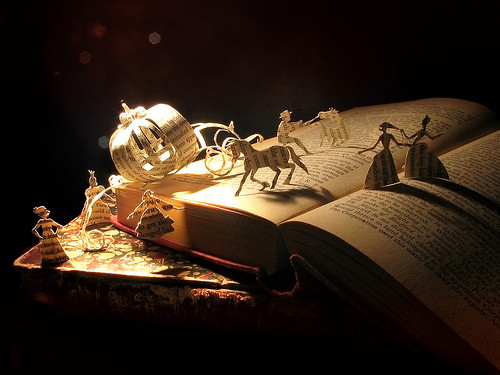Tags
I am a sucker for anything fairy-tale based, whether written for children, young adults, or adults. I’ve also been trying to diversify my reading, so it was hard to resist Melissa Albert’s modern fairy tale for teens, The Hazel Wood, when it came out last year. But resist I did until I went to the NCTE conference last November and finally decided to give it a shot.
am a sucker for anything fairy-tale based, whether written for children, young adults, or adults. I’ve also been trying to diversify my reading, so it was hard to resist Melissa Albert’s modern fairy tale for teens, The Hazel Wood, when it came out last year. But resist I did until I went to the NCTE conference last November and finally decided to give it a shot.
The Hazel Wood tells the story of Alice and her mother, Ella, who are always moving from place to place, just ahead of the next disaster and avoiding anything to do with Alice’s grandmother, Althea Porserpine, author of a famous book of fairy tales. When Alice’s mother disappears and mysterious people keep randomly showing up in all areas of Alice’s life, she and her friend, Ellery Finch, set off to find her mom and figure out what really is the truth about her family.
I had such high hopes for this book. It was fine.
Alice is fairly archtypal: an angry teenager with a difficult life and trust issues who lashes out indiscriminately at anyone who tries to be nice to her. It’s clear Alice is meant to be an edgy character. She uses lots of expletives and some of the conversations are quite adult (which is why I designate it as teen rather than young adult above). However, none of these “edgy” elements are consistent throughout the novel. Additionally, the story and characters flirt with social relevance–references to the Black Lives Matter and Me, Too movements, discussions of identity and feminism, etc.– but they often come out of nowhere, don’t have any connection to the story at hand or any lasting impact, and don’t feel in keeping with the focus on the story. It felt a little like Albert was trying to make this story relevant to today, but it didn’t work in an authentic or meaningful way.
There are definitely some compelling moments, especially when Albert lets go of what is relevant and edgy and just allows the story to find its way. I’ve never read a “Normal Person in Fairyland” story quite like this. It’s a little traditional, a little horror, a little Lewis Carrol, a little rock and roll. Actually, I think Albert has some serious skills around creating suspense and tension. There were a few moments where I almost jumped out of my skin. But other important moments lacked impact. Alice’s entry to the fairy tale world, supposedly a watershed moment for the characters who live there, is kind of perfunctory and airless, and the revelation of a pretty major character’s true identity falls flat, right after which he just disappears from the story. It’s this unevenness that really disappointed me, rather than the idea and story itself.
Overall, it’s not a bad novel. It’s pretty solid teen lit. It could just be better. And honestly, I think Albert will get there. This is undeniably a very creative novel, and I think Albert has the potential to be a strong voice in teen literature in the future.
